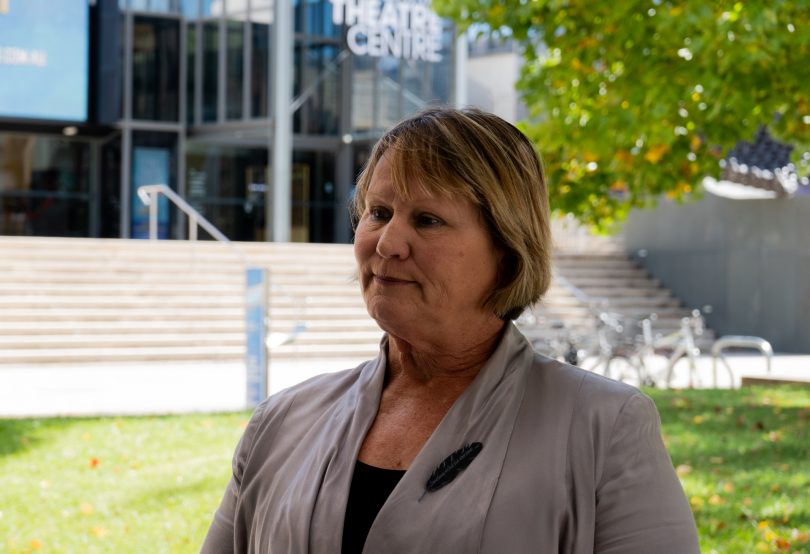
Committee Chair Nicole Lawder has called for submissions into the length of the workweek. Photo: Dominic Giannini.
After being stood down from her job in 2020 due to the pandemic, Hannah had the chance to re-evaluate her work-life balance after almost a decade in full-time work.
Nine-to-five is rarely in a journalists’ repertoire, but after working weekends and evenings, Hannah decided she would reduce her hours to a four-day workweek when she found a new job.
Now, both her productivity and wellbeing are up, she says.
“During the time I was stood down, I realised there was more to life than working all the time,” she said.
“I realised I could achieve a few hobbies, such as helping my partner on his family’s wool farm in the NSW Southern Tablelands and taking on some creative freelance projects.
“Working a four-day week has not only boosted my wellbeing, but I am more productive, with more energy to use on the days I am working.”
The ACT Legislative Assembly’s Standing Committee on Economy and Gender and Economic Equality is calling for submissions into the possibility of moving to a four-day workweek, releasing a new discussion paper on the issue this week.
The discussion paper notes that reductions in working hours have occurred throughout history, including Europe moving from 10 to 16 hour working days to just eight in the 19th century.
In Australia, the last significant milestone to reducing work time occurred 38 years ago when the Australia Conciliation and Arbitration Commission introduced the 38-hour week wage principle, the discussion paper says.
Productivity is also tied to the number of hours worked. Research from Stanford University indicates overwork leads to decreased output as employees become less efficient due to factors like stress and fatigue.
A Swedish study between 2015 and 2017 into shorter workweeks for nurses at a care home found those who only worked 6-hour days, five days a week, logged fewer sick hours, reported better health and mental wellbeing, and increased productivity in some areas by 85 per cent.
Chair Nicole Lawder said the Committee did not have a view on whether the ACT should move to a four-day workweek at this time, saying the benefits would have to be weighed against the possible economic impacts.
“Arguments may be anticipated on both sides of the question as to whether a four-day workweek is the future of the working week,” she said.
“On one hand, a negative view may see it as costly and unaffordable, difficult to implement in some industries and sectors, and unrealistic. On the other hand, there are arguments for working fewer hours.
“Some are economic; some are about health and wellbeing, environmental sustainability and stronger communities; [and] some have to do with equity and equality.”
Submissions close on Monday, 1 November 2021 and public hearings will be held across November and December this year.
Further information on the inquiry, including how to make a submission, is available here.
Original Article published by Dominic Giannini on The RiotACT.













